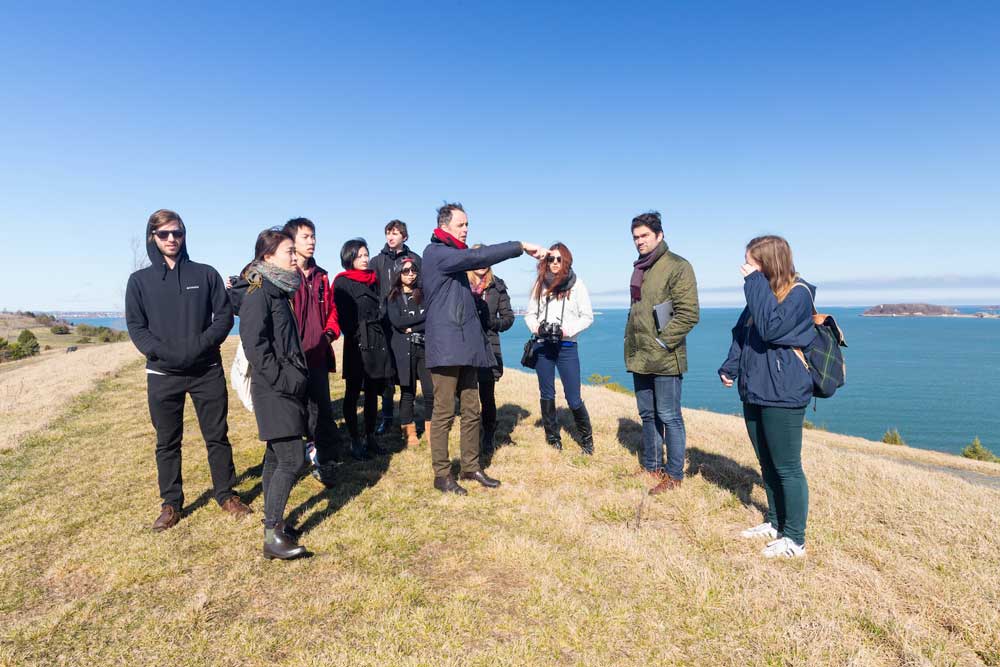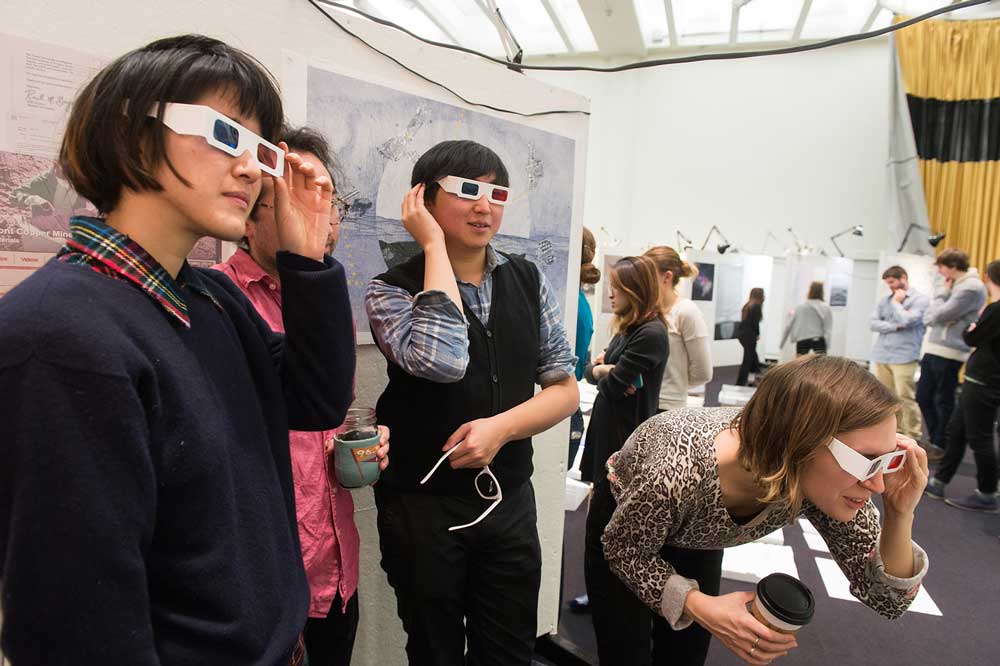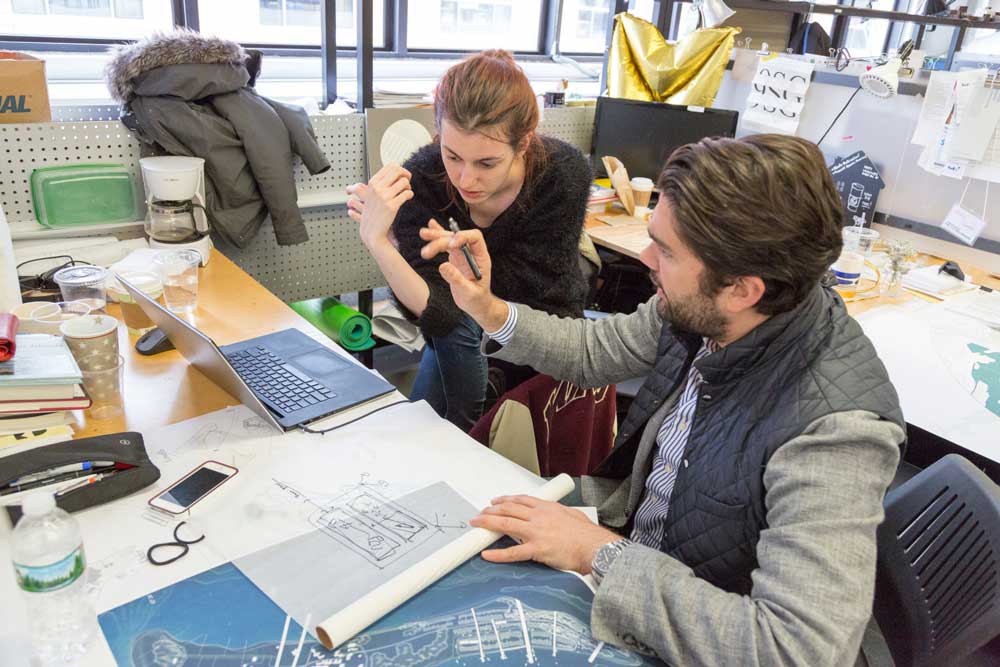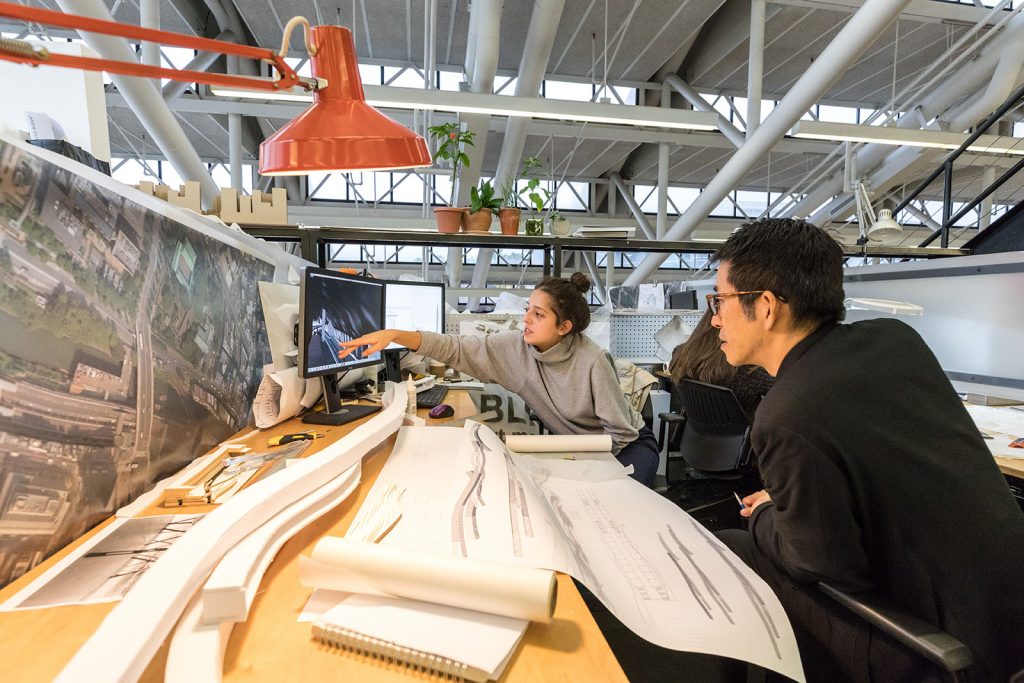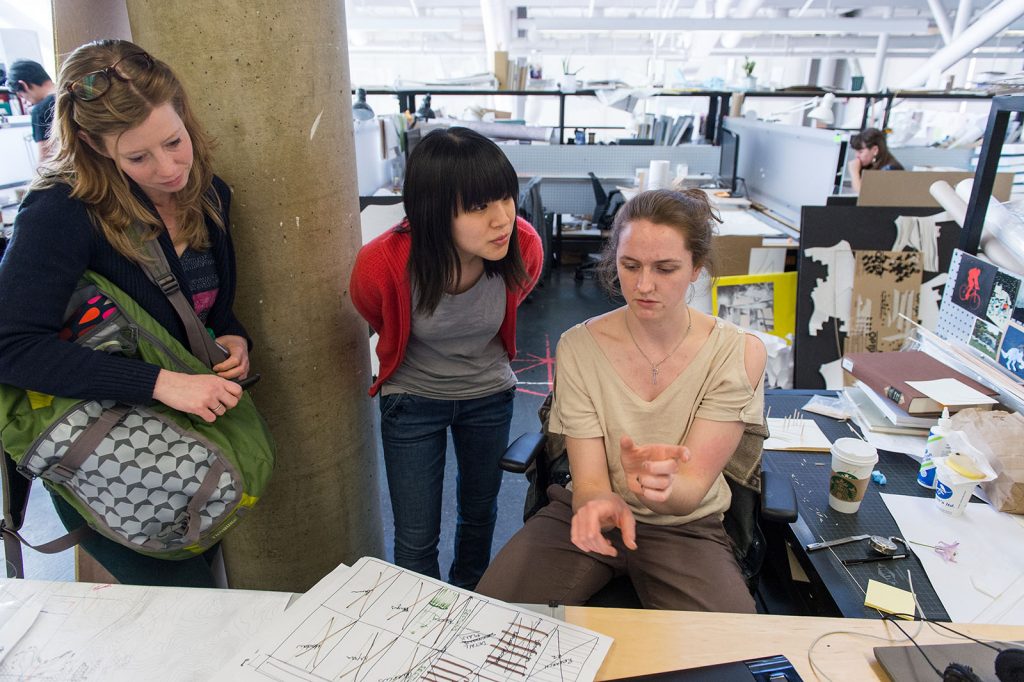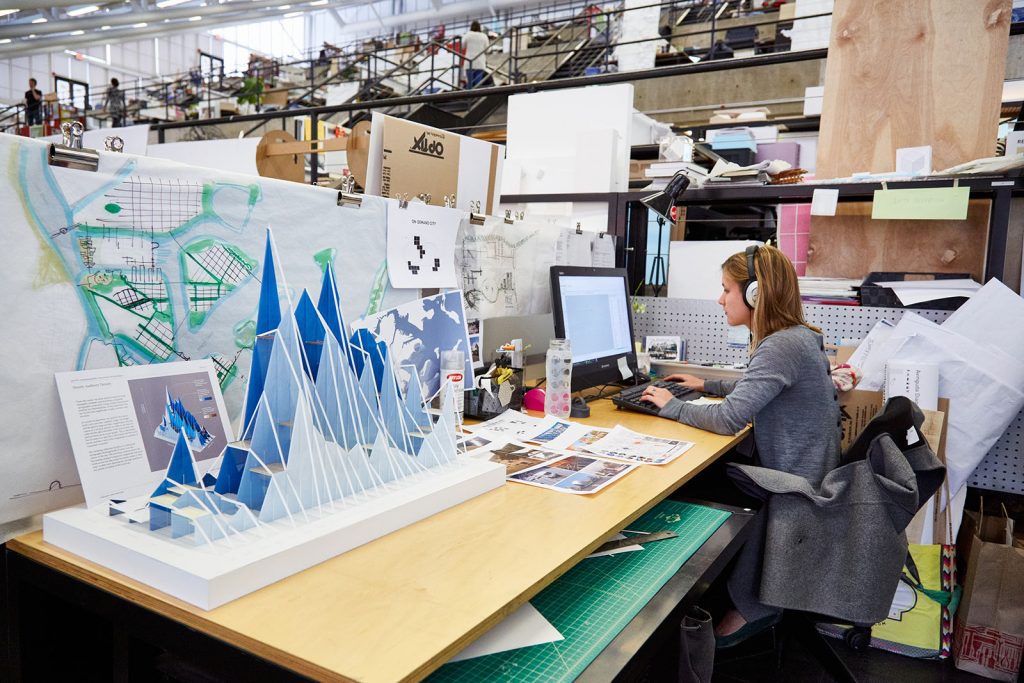Academic Experience
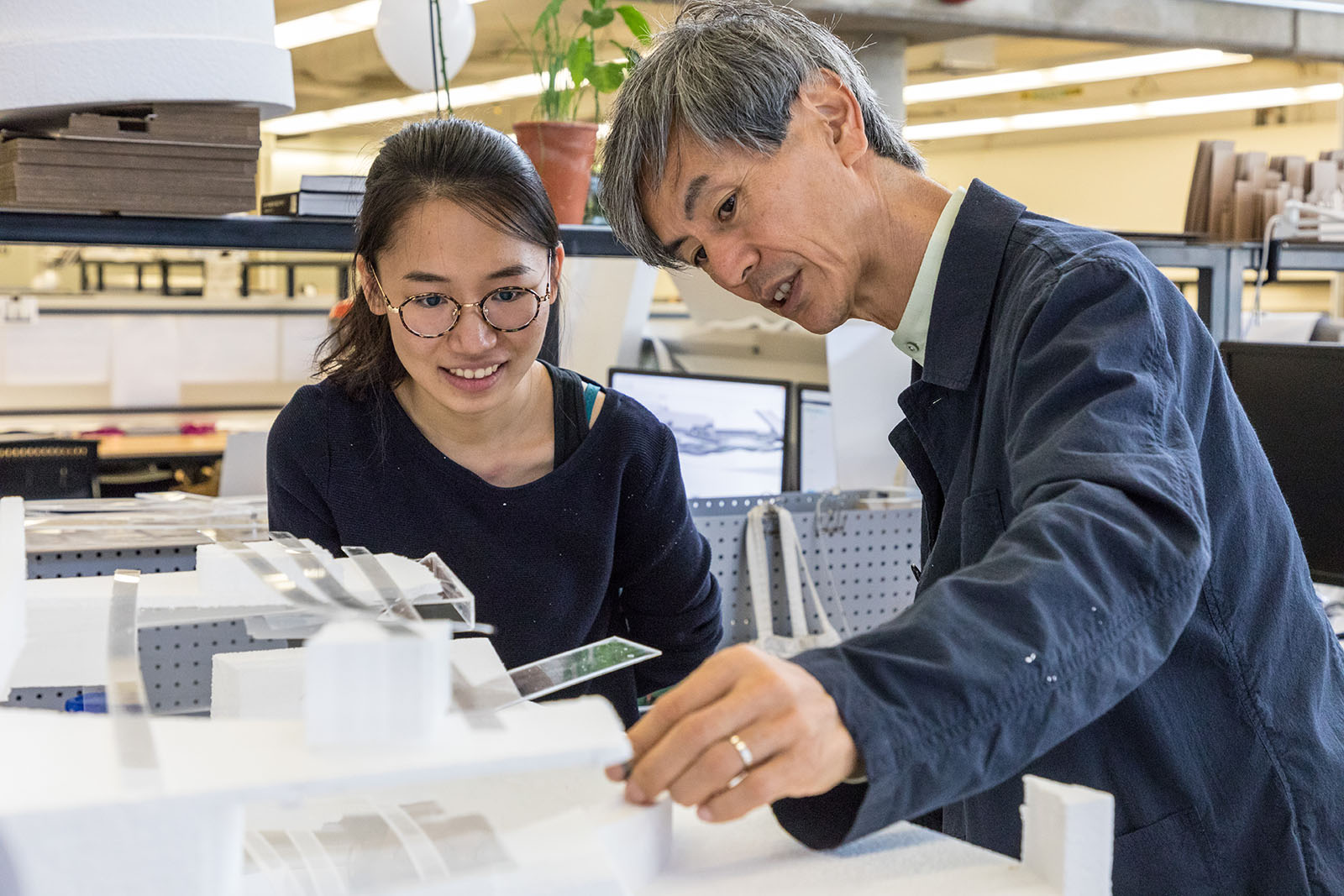
"The cores of the GSD’s various disciplines galvanize the dialogue that drives necessary change across the School and across the world to meet the demands of the 21st century—the dialogue between each of us as individuals and the fields we comprise; and also the dialogue between innovative ideas emerging on the periphery, and the established ways of thinking that underpin the disciplines as we know them today." –Dean Sarah Whiting
Our Courses
Core Studio
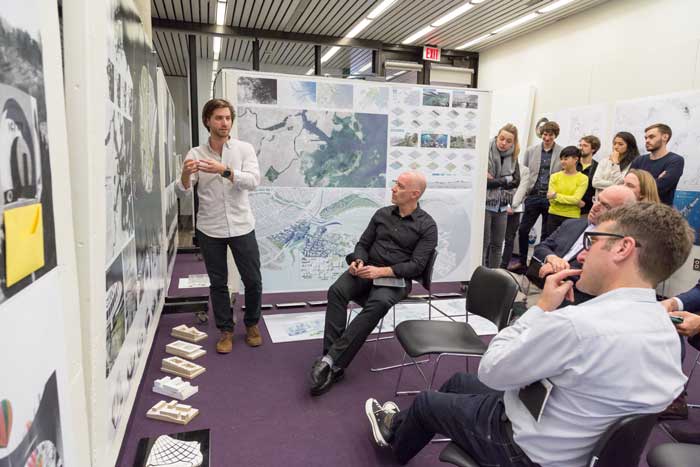
The studio method is central to design education at the GSD. Students enrolled in studio-based programs take one studio course each semester, meeting 2-3 times a week. For those who don’t come from a design background, studio is probably unlike any other class they’ve ever taken. A studio is composed of a dozen or so students under one critic’s tutelage. Student desks are organized by studio and are located in Gund above the lobby on the five terraced levels known as “the trays.” They are home-base for desk crits. Throughout the semester students will share their work and get feedback during pinups, midterm reviews, and final reviews.
Option Studio
After professional degree students complete the core studio sequence, students begin to take option studios. There are about 40 offered each year; one is offered abroad. Students indicate their preferences in a lottery system after option studio presentations. Visiting critics and site visits are highlights of the semester.
Courses
While studio courses are a large component of many of the GSD’s degree programs, nonstudio coursework constitutes the academic backbone of the school and the basis for research-based programs. Professional degree candidates also take required and elective nonstudio courses. Formats include lectures, seminars, and workshops and cover an extraordinary range of research concerns and methodologies. Some operate on an ordinary liberal arts model (assigned readings, lectures, class discussions, student presentations, term papers, etc.), while others include field trips, semester-long projects, and final reviews. Students also are able to cross-register and take courses outside of the GSD.
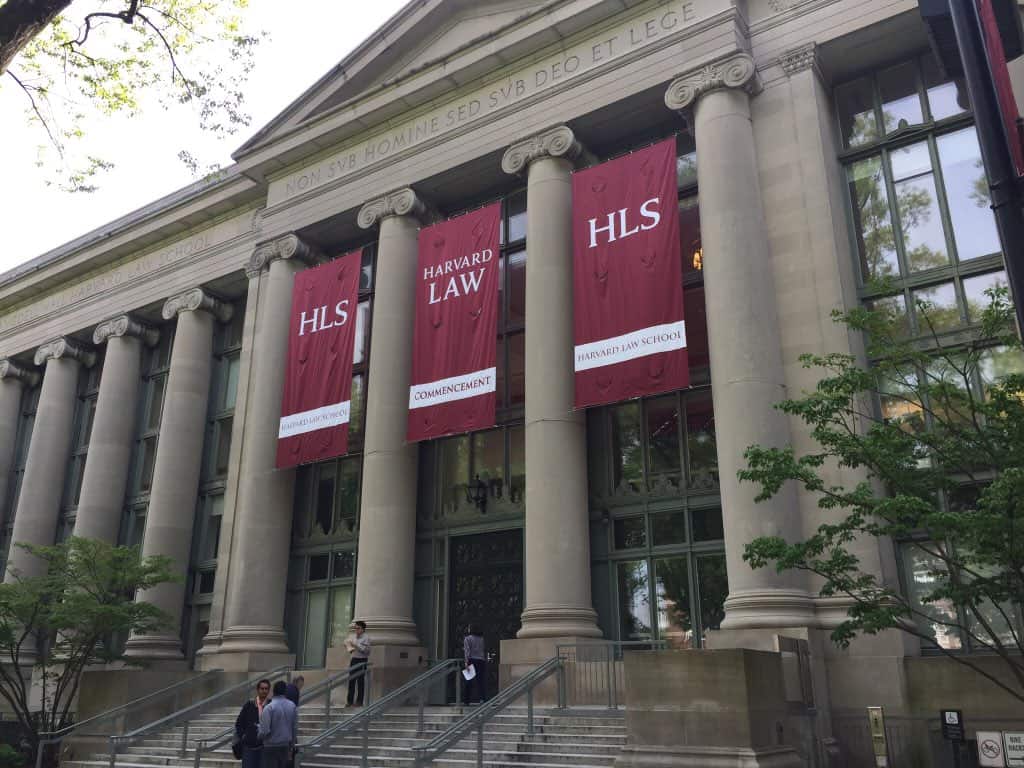
Thesis and Research
The thesis is an opportunity for students to pursue a project that is researched and developed independently. The completion of a thesis is required of all MArch I and MArch I AP students and is optional for all other studio-based programs. Students of any degree program may also pursue a nonthesis, faculty-advised independent research project.
Support Services
Digital Media Workshops
This series of workshops is for developing skills and techniques for the studio environment. The modeling software programs that are mostly used in studios are taught, including Rhino, 3ds Max, Grasshopper, Houdini, Blender, and Digital Project. More specialized applications are also taught in the context of seminars or lectures.
English for Design
This summer course is offered, in collaboration with Boston University, to entering first-year students wanting to improve their comfort with the English language, with an emphasis on design discourse at the GSD.
Research/Writing Support
Whether you are still improving your English or a native speaker, everyone can use extra help in the area of research, writing, and even mapping. Frances Loeb Library offers research consultations, one-on-one writings sessions, mapping and GIS resources, and a range of workshops and events to support students.
J-Term
During the first two weeks in January, a set of free workshops and non-credit courses are offered as an opportunity for students, staff, and faculty to hone skills, learn new ones, or just have fun. Courses are taught for the GSD community, by the GSD community.
Speakers & Workshops
The GSD sponsors a lively public lecture series that provides prominent designers, artists, and thinkers with an opportunity to present their work. The series of exhibitions and events transform the lobby, library, and many areas of the school into places to discover new knowledge and work.
Research Centers and Design Labs
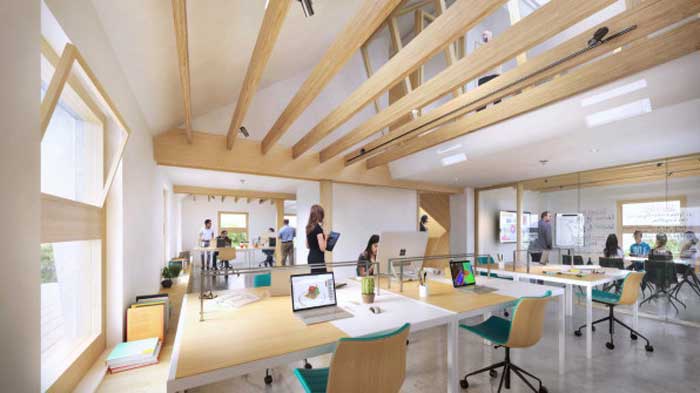
With a tradition of groundbreaking innovations, research at the GSD forms interdisciplinary bridges to the university and beyond. Interests usually fit into three general areas of focus–technology; urbanism and landscape; and history, theory, and design–and take shape through a blend of sponsored research initiatives, design labs, affiliated centers and institutes at Harvard, and faculty-led projects. Thus, the wealth of opportunities to collaborate with both faculty and students is founded upon the integration of design education and research. These programs provide research positions for students.
At A Glance
